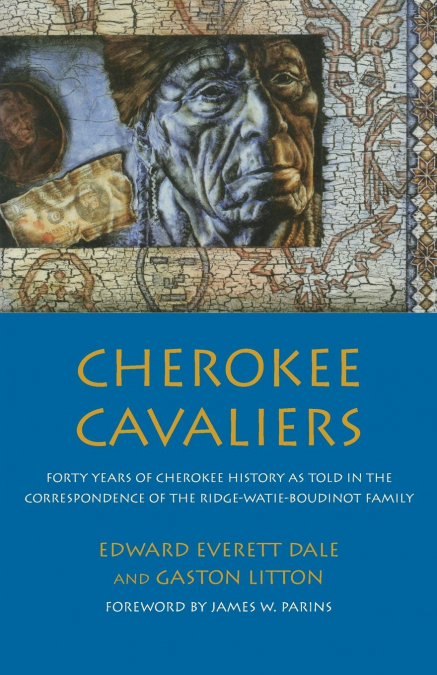
Edward Everett Dale / Gaston Liston
The two hundred letters which from the colorful mosaic of this story of the Cherokee tell for the first time, in the Indian’s own words, of more than forty years in the history of the old Cherokee Nation. These letters, found in three great trunks in Oklahoma by Edward Everett Dale, and here brought together, in collaboration with Gaston Litton, in sequence and with the necessary annotation to make a connected story, are the correspondence of the Ridge-Watie-Boudinot family, the minority leaders in the Nation.The Cherokees, by the first decade of the nineteenth century, had made great progress in civilization. They had a constitutional form of government under which they were to live for three-quarters of a century in a tiny independent republic within the confines of the United States. Not a few were well educated. They had their own written language as evolved by Sequoyah and many had large plantations, cultivated by numerous slaves, and lived in beautiful homes as Southern planters, in the full tradition of the Southern cavalier.From the time of President Jefferson, however, they had been under urgent pressure to leave their traditional homes in the deep south and seek new ones in the great unoccupied lands of the Louisiana Purchase. In 1835 the minority group, headed by the Ridge-Watie-Boudinot family, signed at New Echota, Georgia, a treaty which provided that the entire tribe should remove to lands in Indian Territory already occupied by the Cherokees West. This group was henceforth known as the “Treaty Party.”The treaty and the enforced removal three years later divided the Cherokee into two hostile factions and paved the way for thirty years of political turmoil and bloody strife within the Nation. In these letters, which center around the figure of the last Confederate General to surrender his sword—brigadier General Stand Watie—is told the story of the removal, the establishment of a new nation in the West, the divided loyalties of the tribe during the Civil War, and the tragic difficulties of the reconstruction. The picture is not alone that of life within the Nation. E. C. Boudinot, the Cherokee delegate to the Confederate congress, writes of war-torn Richmond during the Civil War. John Rollin Ridge, the poet and journalist, and several others who followed the Gold Rush to California tell of the mining camps during the days of forty-nine. General Albert Pike’s official correspondence with General Watie is revealed.As only personal letters can reveal, here in intimacy are the lives and thoughts, the loves and hates, the philosophies and ambitions of these proud cavaliers of Cherokee blood. This book will be a revelation to those who have thought of this branch of Indian race as barbarous or semi-civilized. 3